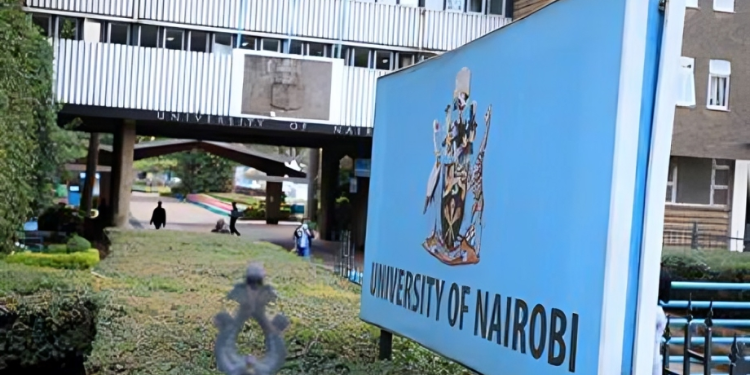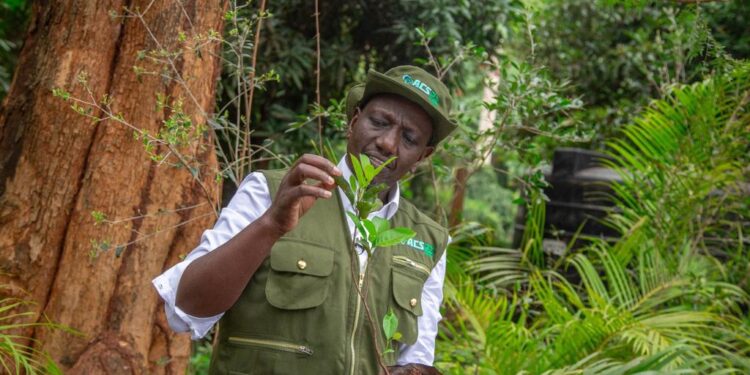Scientists have found that rare trees growing in Kenya can save the world by turning carbon dioxide (CO2) from the air into stone.
The finding, presented by researchers from the University of Zurich at the Goldschmidt Conference, could offer a natural, long-lasting way to fight climate change.
Belonging to the Ficus wakefieldii species, fruit-bearing fig trees found in parts of Kenya, the trees do not just absorb CO2, like most trees do, but how they lock it away permanently.
According to the researchers, Ficus wakefieldii converts CO2 into a solid form known as calcium oxalate. Bacteria living in the tree and the soil then change that into calcium carbonate, the same mineral found in limestone and chalk.
Further, the researchers noted that the tree is found in other African countries, including Tanzania, Uganda, Zambia, and the Democratic Republic of the Congo.
Also Read: How Climate Change is Fueling a Cancer Epidemic in Kenya
How the Rare Trees in Kenya Could Save the World
This turns the harmful gas into rock, keeping it stored in the ground for hundreds, even thousands, of years.
“This process traps carbon in a form that won’t return to the atmosphere easily, even after the tree dies. It’s a natural solution with long-term benefits,” said Mike Rowley, one of the lead scientists involved in the research.
On the other hand, regular trees absorb CO2 but release it back into the air when they die or decay.
By turning CO2 into stone, the Kenyan fig trees remove it from the atmosphere for good.
The iroko tree, found in tropical Africa, also has this ability, though it is not fruit-bearing. Scientists believe that other trees might have similar traits, and they are now looking into which species could help scale this up.
Moreover, although the fruit found in tropical Africa also has this ability, it is not fruit-bearing. Scientists believe that other trees might have similar traits, and they are now looking into which species could help scale this up.
Also Read: How Kenya is Losing Ksh900 Billion Yearly as Climate Worsens
Other Benefits from the Tree
Apart from fighting climate change, this natural process also improves soil quality.
When calcium carbonate builds up in the soil, it raises the PH level and enriches the earth with nutrients. This creates a healthier environment for future vegetation, which could help boost agriculture in areas with degraded land.
However, one major challenge that still remains is how much CO2 a single tree can store over its lifetime. Without exact data, it’s hard to estimate how effective planting more of these trees would be on a global scale.
Also, there are concerns about maintaining biodiversity and ensuring local ecosystems are not disrupted.
Large-scale planting of such trees could become part of broader climate solutions, especially in regions like Africa, where natural resources are abundant.
“This is a reminder that nature may hold the keys to solving some of our biggest problems,” said Rowley.
Follow our WhatsApp Channel and X Account for real-time news updates.










































































